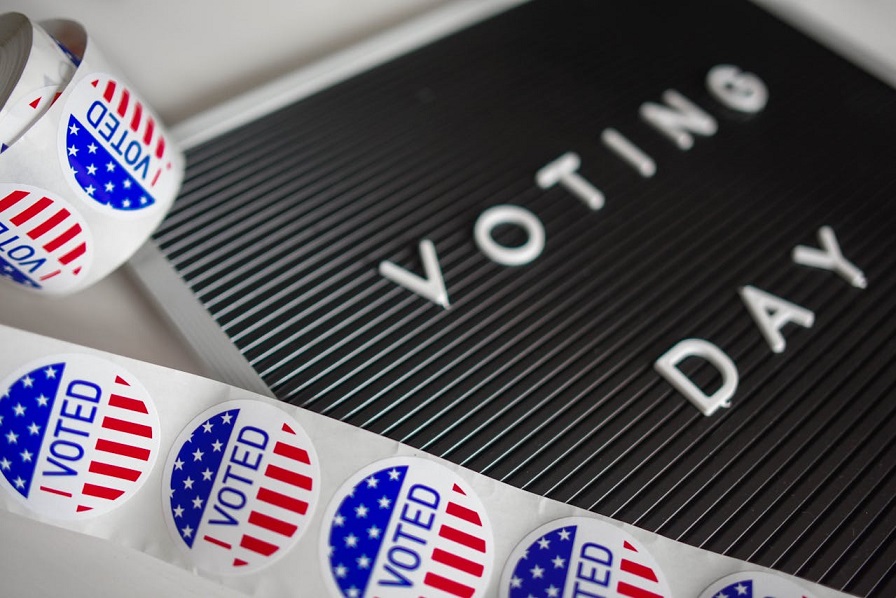The 2024 U.S. presidential election, which marked Donald Trump’s return to the White House, has sent ripples through global politics and reshaped several domestic sectors.
Notably, cryptocurrency emerged as a central theme, with the pro-Bitcoin administration promising favorable regulations and broader integration. This shift is expected to influence several industries like retail and healthcare, including gaming and casinos, where digital currencies are gaining traction. With the administration’s support for blockchain innovation, the best Bitcoin casino platforms are poised to redefine entertainment and gaming, leveraging decentralized finance for transparency and accessibility. Interestingly, it turned out that the experts from the gambling industry provided the most accurate odds for the election.
Anyway, such developments underscore how electoral outcomes, whether by landslide victories or narrow margins, carry transformative potential for industries and individuals alike.
2024 Election: A Contextual Overview
Donald Trump’s 2024 victory over Kamala Harris secured his second term, making him the second former president to reclaim the office. His triumph, while not the largest margin in U.S. history, carried significant implications. Trump reclaimed critical battleground states such as Pennsylvania, Michigan, and North Carolina, reflecting his enduring appeal among key voter blocs. His administration’s focus on digital finance, particularly cryptocurrency, positions the U.S. as a leader in blockchain innovation, impacting diverse industries.
This election highlights the power of electoral outcomes to shape policies and industries, leading to curiosity about the most significant electoral victories in U.S. history.
The Largest Landslide Victories in U.S. History
America’s political history is rich, with elections marked by overwhelming voter support. These landslides often signal transformative eras or overwhelming mandates.
1. George Washington (1789 and 1792): Unanimous Support
George Washington’s elections in 1789 and 1792 remain unparalleled. Elected unanimously by the Electoral College, Washington symbolized unity in the nascent United States. His leadership set the tone for the presidency and cemented his status as the nation’s unifying figure.
2. James Monroe (1820): The Era of Good Feelings
Monroe’s 1820 re-election epitomized national consensus during the “Era of Good Feelings.” Running virtually unopposed, he secured all but one electoral vote, reflecting widespread support during a period of political stability.
3. Franklin D. Roosevelt (1936): Triumph Amid Crisis
Amid the Great Depression, Franklin D. Roosevelt’s 1936 re-election showcased overwhelming public support for his New Deal policies. Winning 523 out of 531 electoral votes, FDR’s victory against Alf Landon solidified his transformative legacy.
4. Richard Nixon (1972): Dominance Before Downfall
Richard Nixon’s landslide victory in 1972 was marked by a staggering 520 electoral votes, with only Massachusetts and Washington, D.C., supporting his opponent, George McGovern. Despite the triumph, the Watergate scandal soon tarnished his presidency.
5. Ronald Reagan (1984): A Resounding Mandate
Ronald Reagan’s 1984 re-election saw him secure 525 electoral votes, losing only Minnesota and Washington, D.C., to Walter Mondale. Reagan’s optimistic vision and economic recovery strategies resonated across nearly the entire nation.
Narrow Margins with Lasting Impact
While landslides reflect overwhelming mandates, narrow election victories can wield equally transformative power. These contests highlight the delicate balance of American democracy.
1. John F. Kennedy (1960): A Slim Victory
John F. Kennedy’s razor-thin margin over Richard Nixon in the 1960 election underscored the power of charisma and effective campaigning. His administration, though short-lived, marked pivotal advancements in civil rights and space exploration.
2. George W. Bush (2000): Contested but Consequential
The 2000 election, decided by a mere 537 votes in Florida, emphasized the critical importance of every ballot. The Supreme Court’s decision to halt the recount secured George W. Bush’s presidency, shaping U.S. foreign and domestic policies for years to come.
Implications of the 2024 Election on Modern Sectors
Trump’s 2024 victory is already reshaping industries, particularly cryptocurrency. His administration’s advocacy for digital assets has sparked optimism among blockchain technology proponents. Trump’s return highlights the role of digital media and alternative information ecosystems in modern campaigns. Prediction markets, cryptocurrency donations, and decentralized platforms played pivotal roles in mobilizing support, reflecting the intersection of technology and politics.
Lessons from Electoral Margins
Whether landslides or nail-biting finishes, U.S. elections underscore the importance of democratic engagement. Landslides often signal national unity or broad consensus on pressing issues, while narrow victories highlight the significance of grassroots mobilization and strategic campaigning.
Historical landslides, such as Washington’s unanimous elections or Reagan’s sweeping victory, showcase moments of overwhelming public support. Conversely, close contests, like Kennedy’s or Bush’s, reveal the intricate dynamics of voter behavior and the enduring power of individual participation.
Conclusion
Donald Trump’s 2024 victory reminds us of the profound impact elections have on society. His administration’s focus on cryptocurrency and blockchain innovation demonstrates how political outcomes can influence industries far beyond traditional policy domains. The historical context of America’s largest election landslides provides valuable insight into how electoral margins—whether sweeping or slim—shape the nation’s trajectory.
From Washington’s unanimous elections to Reagan’s record-breaking mandate and now Trump’s transformative return, these milestones illustrate the enduring power of democracy to adapt and evolve. As the U.S. enters a crypto-friendly era, the lessons of history underscore the significance of every vote and the far-reaching consequences of electoral outcomes.
